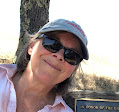What do you do when an idea for a novel (or painting or other creative work) drops out of the sky, but after the first few flushes of loving the work, you stop believing that the work is valuable? What you do is you talk yourself into creating.
Here’s how my own talk-on-paper went this morning:
Why am I stalled after the fourth chapter of this novel? Well, first, there’s the nagging doubt that it will amount to anything. Then there’s the feeling that working on the novel is just a big excuse not to be doing the long list of things I should be doing, like prospecting for “real” writing work that pays the bills (like marketing publications).
And yet at the same time, when I think about my real desire in life, isn’t it to write books? And aren’t I lucky to have this idea for a book, the writing of which could mean joy and respite from a long cold winter – not to mention a tax deduction for dancing lessons AND a few trips to California, since both are needed for research?
At the very least, couldn’t this novel be a practice ground for future novels to come? I have one bad novel under my belt; why not two? Isn’t this idea for the novel actually a total gift?
As I talked to myself on paper, it became increasingly clear that with my drive to write the novel, I was being gifted with a classic “meaning adventure,” a phrase coined by Eric Maisel in The Van Gogh Blues: The Creative Person’s Path through Depression (New World Library, 2002). In this book, Maisel argues that creators tend to deal more often with existential questions about meaning because we are individualists who doubt traditional wisdom and insist on providing our own answers to questions of meaning. This quality, of course, leaves us vulnerable to meaning crises – even depression. However, because we are creative, we also have amazing opportunities for meaning adventures – such as I am experiencing by talking myself into continuing to work on the novel.
Here’s how my own talk-on-paper went this morning:
Why am I stalled after the fourth chapter of this novel? Well, first, there’s the nagging doubt that it will amount to anything. Then there’s the feeling that working on the novel is just a big excuse not to be doing the long list of things I should be doing, like prospecting for “real” writing work that pays the bills (like marketing publications).
And yet at the same time, when I think about my real desire in life, isn’t it to write books? And aren’t I lucky to have this idea for a book, the writing of which could mean joy and respite from a long cold winter – not to mention a tax deduction for dancing lessons AND a few trips to California, since both are needed for research?
At the very least, couldn’t this novel be a practice ground for future novels to come? I have one bad novel under my belt; why not two? Isn’t this idea for the novel actually a total gift?
As I talked to myself on paper, it became increasingly clear that with my drive to write the novel, I was being gifted with a classic “meaning adventure,” a phrase coined by Eric Maisel in The Van Gogh Blues: The Creative Person’s Path through Depression (New World Library, 2002). In this book, Maisel argues that creators tend to deal more often with existential questions about meaning because we are individualists who doubt traditional wisdom and insist on providing our own answers to questions of meaning. This quality, of course, leaves us vulnerable to meaning crises – even depression. However, because we are creative, we also have amazing opportunities for meaning adventures – such as I am experiencing by talking myself into continuing to work on the novel.
Sometimes you just have to remind yourself how lucky you are to be driven to create, and to have something in mind to create. Indeed, ideas for new projects are both a gift and an adventure.


No comments:
Post a Comment